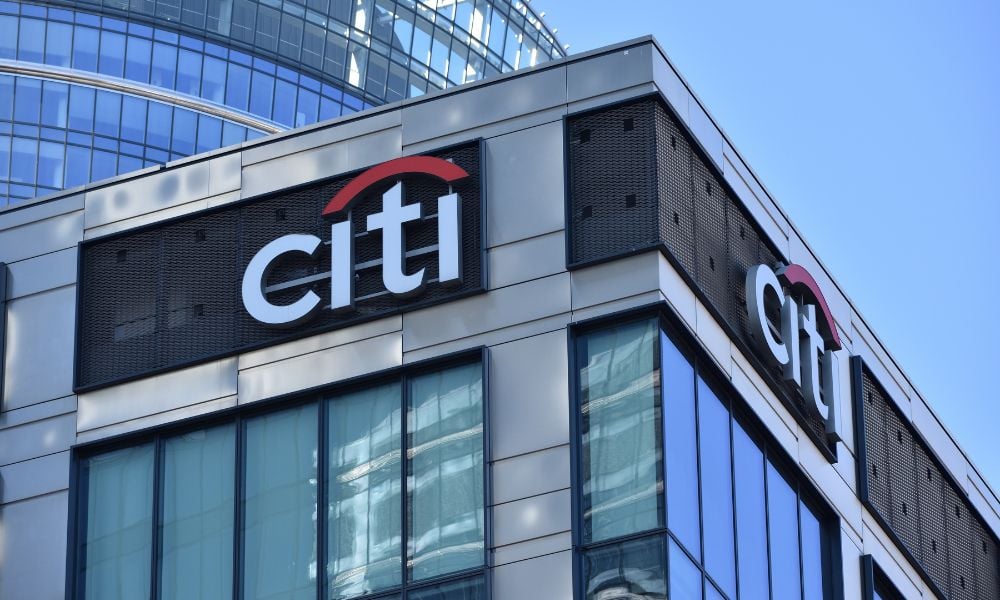

Citigroup is planning to significantly reduce its reliance on external IT contractors and expand its internal technology team as part of an effort to strengthen controls and address regulatory concerns.
The bank aims to bring more of its IT operations in-house, with a goal of reducing external contractors from 50 percent of its IT workforce to 20 percent.
Alongside those changes, Citi plans to increase its technology staff from 48,000 in 2024 to 50,000, according to a recent internal presentation viewed by Reuters.
The changes come as the bank works to address regulatory concerns related to risk management and data governance. As noted by Reuters, US regulators slapped Citi with a $135 million last year over longstanding data management shortcomings.
In October, Democratic Senator Elizabeth Warren issued a call to place growth restrictions on the Wall Street giant, calling the firm "too big to manage."
"Citi is growing our internal technology capabilities to support our strategy to improve safety and soundness, enable revenue growth and drive efficiencies," the bank said in a statement to the news outlet.
Tim Ryan, Citigroup’s head of technology, reportedly outlined the IT workforce overhaul in recent weeks, though the company did not specify a timeline for the transition. Ryan, who joined the bank from PwC in June 2023, has been overseeing efforts to improve the bank’s technology infrastructure.
Citi’s internal presentation also referenced a $22.9 million fraud event involving external contractors, highlighting the challenges the bank faces in managing third-party vendors. While part of that amount was tied to legitimate work, according to a source familiar with the matter, Citi did not disclose how much of it was linked to fraud.
"In the rare instances that we detect any fraudulent activity, whether internally or by a vendor, we take immediate action to hold those responsible accountable for their actions," the bank said.
The planned changes are also expected to affect Citi’s IT operations geographically. The bank could reduce its current roster of 144 external IT suppliers to 50, according to the presentation.
Additionally, Citi intends to shift more of its workforce to what it considers high-cost locations, such as New Jersey, New York, and Irving, Texas, while reducing reliance on lower-cost hubs like Chennai, India, Belfast, UK, and Warsaw, Poland.
As part of its consolidation strategy, Citi will also relocate its IT team from Rutherford, New Jersey, to a centralized site in Jersey City in 2025. While the bank will maintain other operations in Rutherford, its technology workforce will no longer be based there.
The IT restructuring is the latest in a series of changes Citi has made in response to regulatory scrutiny. Earlier this year, chief financial officer Mark Mason said the bank was increasing investment to address data governance shortcomings, a move that contributed to the company lowering its profitability targets for 2026.

By listening for what truly matters and where clients want to make a difference, advisors can avoid politics and help build more personal strategies.

JPMorgan and RBC have also welcomed ex-UBS advisors in Texas, while Steward Partners and SpirePoint make new additions in the Sun Belt.

Counsel representing Lisa Cook argued the president's pattern of publicly blasting the Fed calls the foundation for her firing into question.

The two firms violated the Advisers Act and Reg BI by making misleading statements and failing to disclose conflicts to retail and retirement plan investors, according to the regulator.

Elsewhere, two breakaway teams from Morgan Stanley and Merrill unite to form a $2 billion RIA, while a Texas-based independent merges with a Bay Area advisory practice.
Orion's Tom Wilson on delivering coordinated, high-touch service in a world where returns alone no longer set you apart.
Barely a decade old, registered index-linked annuities have quickly surged in popularity, thanks to their unique blend of protection and growth potential—an appealing option for investors looking to chart a steadier course through today's choppy market waters, says Myles Lambert, Brighthouse Financial.
